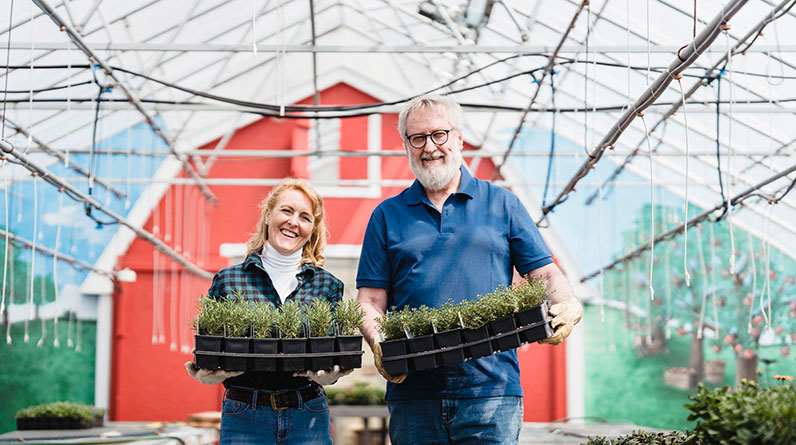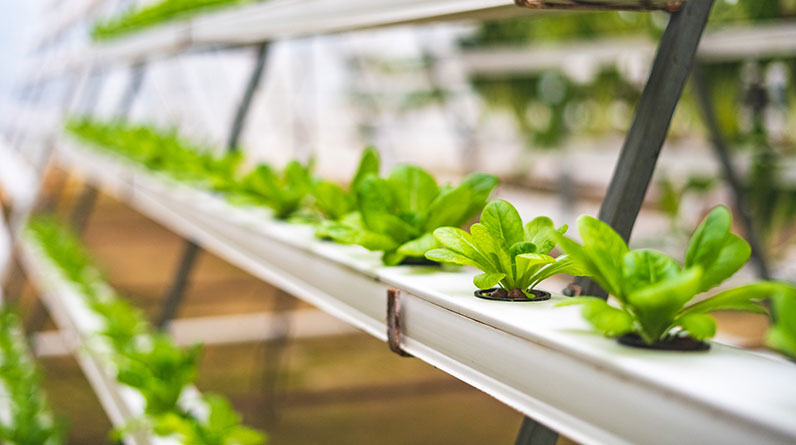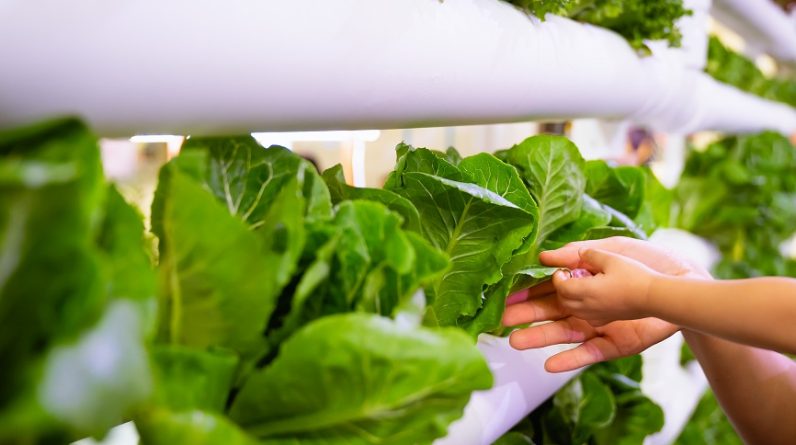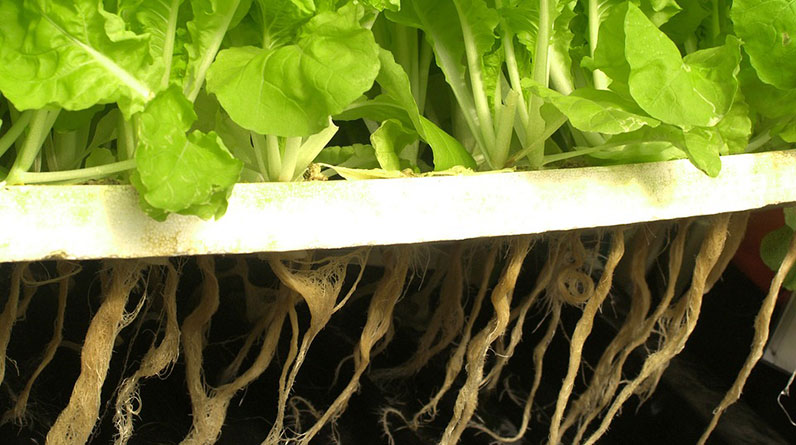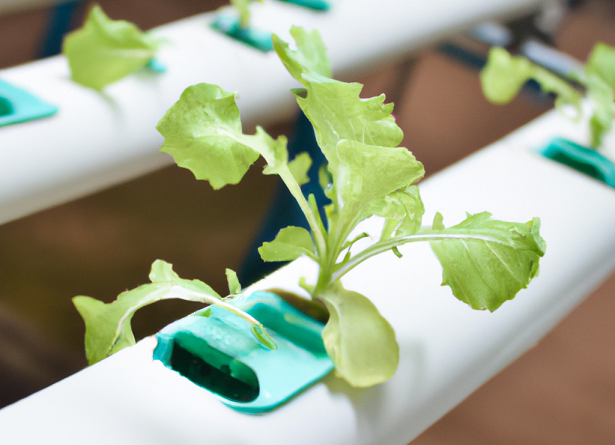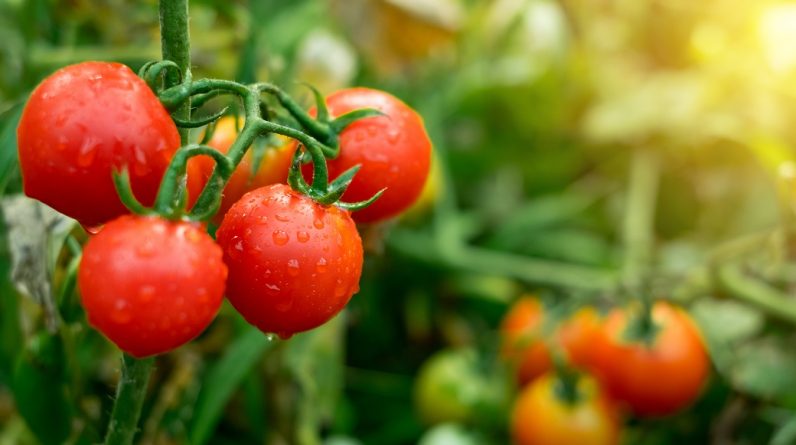
Why Grow Tomatoes in a Hydroponic Garden?
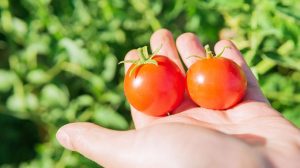 Tomatoes are an excellent plant to grow in hydroponic garden because they are one of the most popular and widely consumed vegetables worldwide. They are packed with nutrients and antioxidants, including vitamin C, potassium, and lycopene, which have been linked to numerous health benefits, such as reducing the risk of heart disease, improving skin health, and lowering the risk of certain types of cancer.
Tomatoes are an excellent plant to grow in hydroponic garden because they are one of the most popular and widely consumed vegetables worldwide. They are packed with nutrients and antioxidants, including vitamin C, potassium, and lycopene, which have been linked to numerous health benefits, such as reducing the risk of heart disease, improving skin health, and lowering the risk of certain types of cancer.
Growing tomatoes in a hydroponic garden also has several advantages compared to traditional soil-based gardening. First, hydroponic systems allow for precise control of the growing environment, including temperature, water, and nutrient levels, which can lead to faster growth and higher yields. In a hydroponic garden, the plants take up nutrients more efficiently, and there is less risk of nutrient deficiencies or excesses, which can cause plants to wilt or die.
Another benefit of hydroponic gardening is that it requires less water compared to traditional soil-based gardening. In hydroponic systems, water is recirculated and reused, reducing the need for constant watering and allowing for better conservation of water resources.
Hydroponic gardening is also cleaner and more sustainable compared to soil-based gardening. There is no need for harmful pesticides or fertilizers that can leach into the soil and water supply. The controlled environment of hydroponic gardening also reduces the risk of disease and pest infestations, resulting in healthier, more vibrant plants.
Finally, growing tomatoes in a hydroponic garden is a great way to save space and increase yields in small urban environments or limited outdoor growing space. Hydroponic systems can be set up vertically, maximizing the use of space and allowing for more plants to be grown in a smaller area.
Overall, growing tomatoes in a hydroponic garden is an excellent way to produce a healthy, flavorful crop in a sustainable, efficient, and space-saving manner.
Will I Get a Greater Tomato Crop Yield in a Hydroponic Garden?
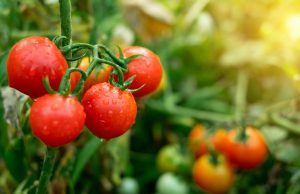 There are several factors that can influence tomato yield in hydroponic gardening systems. In general, hydroponic systems have the potential to produce higher yields than traditional soil-based methods. This is because hydroponic systems allow for greater control over the growing environment and nutrient balance, which can promote faster and more efficient plant growth.
There are several factors that can influence tomato yield in hydroponic gardening systems. In general, hydroponic systems have the potential to produce higher yields than traditional soil-based methods. This is because hydroponic systems allow for greater control over the growing environment and nutrient balance, which can promote faster and more efficient plant growth.
One key advantage of hydroponic systems is the ability to control and optimize nutrient levels. In a hydroponic system, plants consume nutrients directly from the water, which is carefully monitored and adjusted as needed. This can help ensure that the plants receive exactly the right balance of nutrients for optimal growth and yield. Additionally, because hydroponic systems recycle water and nutrients, there is less waste compared to traditional soil-based systems.
Another advantage of hydroponic systems is the potential for year-round growing. With hydroponics, temperature, humidity, and light can be finely tuned to create a stable and optimal growing environment, even in the dead of winter. This can allow for continuous production of tomatoes, which can result in higher overall yields.
Several studies have reported higher tomato yields in hydroponic systems compared to soil-based systems. For example, a study from the University of Arizona found that hydroponic tomatoes yielded up to 40% more fruit than soil-grown tomatoes. Another study from the University of California-Davis found that hydroponic tomatoes had higher overall fruit quality and yield than soil-grown tomatoes.
However, it is important to note that hydroponic gardening does require a significant investment in infrastructure and equipment, which may not be practical for small-scale growers. Additionally, hydroponic systems require careful monitoring and maintenance to ensure optimal nutrient levels and plant growth, which can be time-consuming and labor-intensive.
Overall, while hydroponic gardening can result in higher tomato yields compared to traditional soil-based methods, it may not be practical or feasible for all growers. However, for those with the resources and expertise to implement and maintain a hydroponic system, the potential for increased yield and quality may make it a worthwhile investment.
Potential Problems to Expect Growing Tomatoes With Hydroponic Gardening
Here are some common problems that people might face while growing tomatoes with hydroponic gardening:
- Nutrient Imbalance: Hydroponic tomatoes require specific nutrient formulations to grow properly, and an imbalance in the nutrients can lead to stunted growth, yellowing leaves, and other problems.
- pH Levels: Tomatoes are sensitive to pH levels and require a range of 5.5 to 6.5 for optimal growth. If the pH is too high or too low, the plant won’t be able to absorb all the necessary nutrients.
- Water Temperature: Hydroponic tomatoes require water that is between 65°F to 75°F as the roots are submerged in the water. If the temperature gets too high or too low, this can cause root damage and slow down plant growth.
- Pests and Diseases: Hydroponic systems can be a breeding ground for pests and diseases if not monitored properly. Common pests that attack tomato plants include aphids, spider mites, and whiteflies.
- Lighting: Tomatoes require specific lighting conditions for optimal growth. If the plants don’t receive enough light, they can become leggy and weak, and if the heat generated by the bulbs is too high, it can damage the plants.
Can you Expect Your Tomatoes to be More Nutrient Rich?
Based on scientific research, tomatoes grown with hydroponics can potentially be more nutrient-rich compared to traditional soil-grown tomatoes, depending on the specific growing conditions and nutrients used in the hydroponic system. Hydroponic systems allow for precise control over the nutrients and environment that the plants receive, which can result in higher nutrient uptake and quality. However, the nutrient content of hydroponic tomatoes can also be influenced by factors such as genetics and growing techniques, so don’t necessarily expect your crop to be more nutrient dense than your neighbors!




